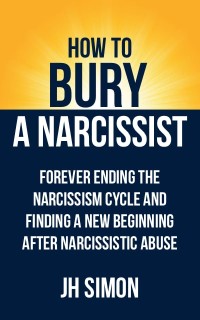A narcissist must always be special and superior to others. This much we know. There are many examples of the ways they achieve this. Showboating. Pretending. Talking over you.
The covert narcissist, on the other hand, works in the shadows. Rather than inflate themselves, they achieve a sense of superiority by deflating you instead.
The covert narcissist has two aims:
- To enforce control over you.
- To maintain a mismatch in the relationship, with you at the bottom.
On the surface, all seems fine when you are in a relationship with a covert narcissist. Meanwhile, the slow-acting poison of their hidden abuse sets in. That dark, heavy feeling of shame descends. You become less assertive, and less able to say no. You question yourself. Your legitimacy. Your right to speak out. How did this happen?
Awareness breaks the cycle. Here are five examples of covert narcissistic abuse which are difficult to spot:
1. Comparing You To Others
During a discussion about your future, the covert narcissistic parent reminds you that the next-door neighbour’s daughter is already engaged. As you chat about your health and fitness goals, your covert narcissistic partner reminisces on how in-shape their ex was.
Comparison is one of the most brutal ways our inner critic shames us. We compare ourselves to others constantly, and the more we do, the worse we feel. Yet we often forget that this subtle and cruel tactic can come from outside. So-and-so did it, why can’t you? Look at what so-and-so has, isn’t that great? In these two examples of covert narcissistic abuse, the first is an on-the-nose comparison, whereas the second example leaves it to you to make the comparison. In both cases, shame is the result.
The covert narcissist ‘innocently’ points something out, and their target is left to feel insufficient as a result. Even when it is done under the guise of supporting you, comparison is terribly shaming, and almost always counter-productive.
In the pursuit of a goal, comparison can spur healthy shame and encourage you to improve. Yet the healthier way to grow is by comparing yourself to your past self. Each day is a chance to be better than you were yesterday. Each day is a chance to grow. What others are doing and what stage they are at is their business.
2. Discounting And Dismissing What You Value
A relationship should be a platform for all parties to evolve. While we should stay away from flattery, it is crucial to support each other. This includes the other person genuinely taking the time to hear what you have to say and trying to experience it through your eyes.
For example, if you had an amazing day hiking in the mountains, you might run home and excitedly tell the story to a loved one. While they were not there to experience it with you, they can absorb your excitement and share in it by proxy. They relax into your reality, take in your words, your facial expressions, your body language, and they join in your space.
A covert narcissist refuses to do this. What you like and what moves you is simply an irritation — unless they can get something out of it.
The fact that you had a great day and they did not is shaming to them, and they counteract that feeling by rejecting and dismissing you. They will listen with a blank stare to your hiking story, or comment on how someone died on those mountains a few years ago. The covert narcissist may even smile condescendingly, making you feel childish and foolish. Deep down, you know they are not receiving you, and your excitement quickly morphs into self-loathing and sadness.
3. Giving You Advice Without Your Participation
This example of covert narcissistic abuse can easily be well-disguised. It starts with you voicing a concern, or something you are uncertain about. You are not sure which job to apply for, or are having some difficulties with your partner.
In a healthy relationship, your counterpart might look to support you by probing you with insightful questions or simply standing in as a mirror while you explore your doubts. The entire focus is on you. More accurately, the focus is on exploring your concern with the aim of gaining clarity.
A good friend will begin by empathising with your feelings, putting themselves in your shoes, and then using their outsider’s perspective to give you new information. They are not concerned with themselves.
The covert narcissist takes a different approach.
As soon as the covert narcissist hears your concern, they view the problem and the solution from their own perspective.
Once you have voiced your doubts, your part is over. The covert narcissist proceeds to tell you what to do as they flesh out their superior solution from beginning to end and force it down your throat. There is no exploration, no consideration of feelings and perspectives. As soon as the narcissist’s ego latches onto a solution, the discussion is over. It becomes a monologue, and you are left feeling helpless and impotent.
If you are unaware of what just happened, you may nod reluctantly and thank them for their advice. Deep down, however, you have more doubt than ever. This is because a solution is always useless if it does not consider the uniqueness of the person involved.
The right answers flow from the True Self. The Self must be in the pilot’s seat, and the ego’s job is to guide it in implementing solutions. The covert narcissist hijacks the plane and takes it somewhere else completely. Your life experience is unique, and anyone who ignores this fact is not only of no help, but is actively harming your growth.
4. Hijacking The Conversation
While we focus on each other’s words during conversation, we should also maintain awareness of the subtext beneath the surface. What message is being insinuated? Where is the conversation headed? What is each person getting from the experience?
For example, good friends carry on a conversation with no real agenda. They want to connect, deepen the bond, and have a chance to share and grow. In any case, the flow involves and prioritises both people.
For the covert narcissist seeking narcissistic supply, the balance shifts immensely. For one, the covert narcissist maintains control over the flow of the conversation by talking with higher intensity, and speaking for far longer than their counterpart.
In time, a conversation becomes a monologue. Slowly you feel your enthusiasm fading. If you want to contribute, you will need to punch through. So you raise your energy and blurt something out. The covert narcissist responds by disengaging their interest.
As you sense the conversation losing steam, you pause, which the covert narcissist takes as their cue to resume their monologue. They aim to keep the attention on themselves, and to have you engaged with what they are saying. There is no shared connection or flow where both people contribute and benefit.
5. Using Silence To Keep You In Line
Of all the examples of narcissistic abuse, this is perhaps the deadliest.
A lack of response can be more painful than an insult. When we are presented with a proposal or idea that makes us uncomfortable, we are forced to speak up. In doing so, we have to lean into more discomfort. Why would we do this?
Firstly, we are aiming to set a boundary. This is clear. But an equally important outcome is that we have communicated our side to a person we value, which helps maintain the integrity of the relationship. Communication is how we keep balance, accept accountability, and avoid misunderstandings. It is short-term discomfort for long-term relational growth.
For the narcissist, honest and vulnerable communication is a threat to their being.
The covert narcissist does not want to be accountable, or to experience discomfort. As a result, they respond to situations that do not suit them by going AWOL. You get no text, no acknowledgement, and no attempt to clarify their side. They do not listen and discuss. Rather, they redirect your attention and avoid you until the situation blows over.
Because the covert narcissist remains unaffected, you are left to deal with the hurt and confusion of a one-sided relationship. Resentment builds on your end, but because there is nobody to engage, you are left to swallow it and move on. You learn to repress your needs and let the covert narcissist dictate the terms.











